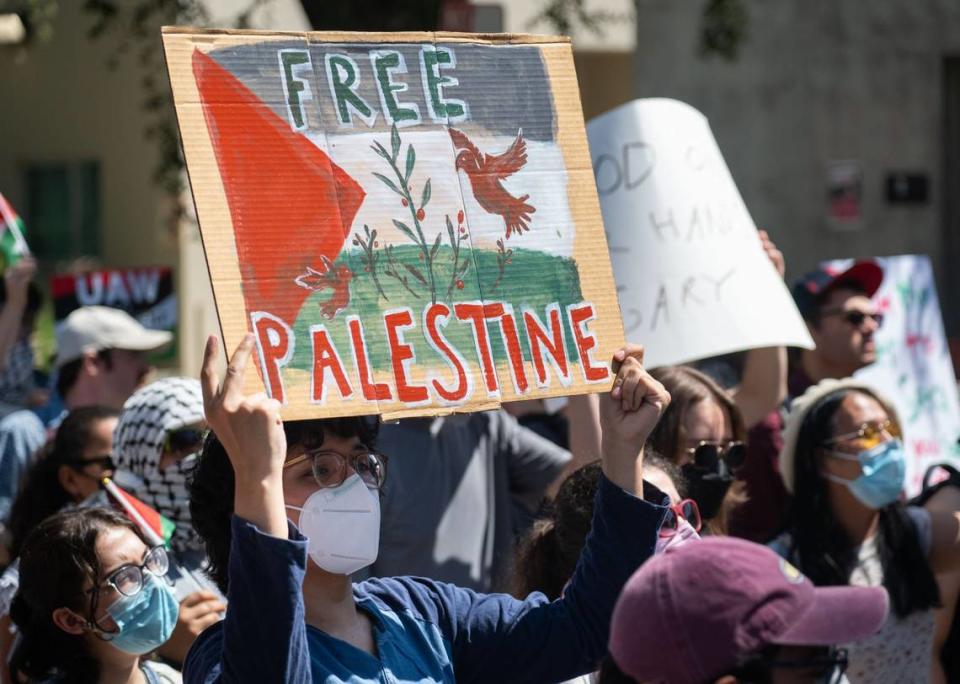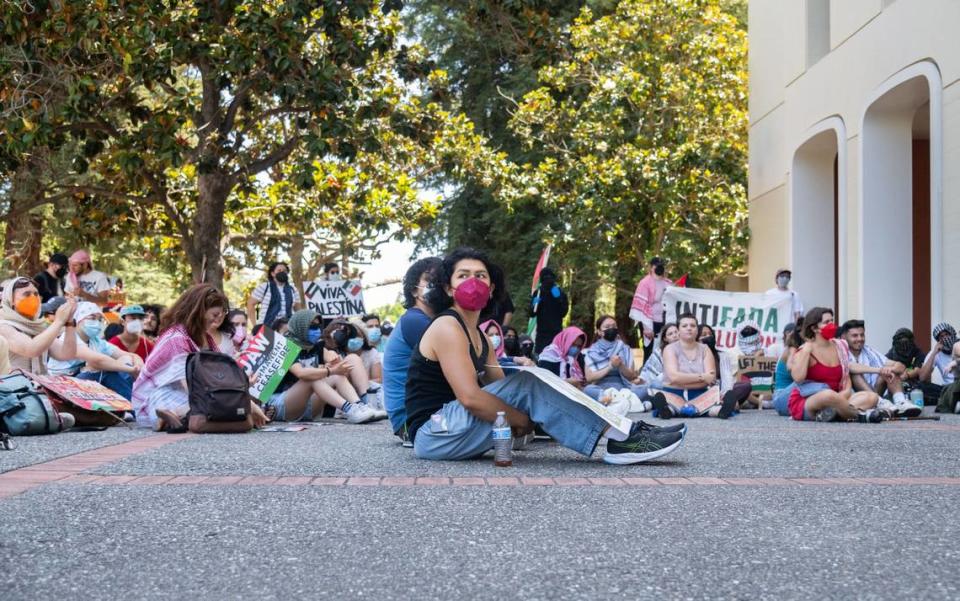Education workers marched in protest on the UC Davis campus. Here’s why
A group of academic workers at University of California, Davis marched in protest on campus Tuesday, alongside pro-Palestinian protesters against the war in Gaza, opposing last week’s court decision that allowed the school system to stop their strike.
“I’m not surprised that the UC is trying to do this, but we’re not going to stop fighting,” said UC Davis grad student and United Auto Workers Local 4811 vice chair Emily Weintraut.
Orange County Superior Court Judge Randall J. Sherman ruled Friday in favor of the University of California’s move to halt UAW 4811’s strike with a temporary restraining order. The university system said the strike caused “irreparable harm” to students and campus operations, and that the strike was an illegal breach of their contract.
The union’s strike began at UC Santa Cruz last month and spread to other campuses, including UC Davis, UCLA and UC Irvine. The union has alleged unfair labor practices and violations of First Amendment rights regarding the treatment of students protesting Israel’s role in the war in Gaza.
UC officials had two previous attempts at stopping the strike fail at the Public Employment Relations Board before Friday’s decision. Weintraut and other speakers Tuesday accused UC officials of finding a favorable court to rule in their favor.
“This is unprecedented, what they did. I don’t think we’ve ever seen a public employer circumvent PERB like this and go around it,” Weintraut said.
The union’s strike is officially halted, Weintraut confirmed, while union members participating in the march were doing so on their own time between work shifts.
“From the beginning, we have stated this strike was illegal and a violation of our contracts’ mutually agreed upon no-strike clauses,” said Melissa Matella, the UC’s associate vice president for systemwide labor relations in a statement Friday. “We respect the advocacy and progressive action towards issues that matter to our community and our community’s right to engage in lawful free speech activities — activities that continue to occur across the system. However, UAW’s strike is unrelated to employment terms, violates the parties’ agreements, and runs contrary to established labor principles.”
The march through the UC Davis campus began at the Memorial Union Quad, feet from the pro-Palestinian encampment that began May 6, and finished at Emil Mrak Hall which holds the offices of the school’s administration. Roughly 120 people participated. It was a mix of union members and Palestine supporters protesting against the school, alleging its support of Israel amid the conflict in Gaza.
There was no run-in with campus police or school officials during the march. There were a handful of counter-protesters recording videos on their phones, including members of the Davis October 7th Coalition. The campus was mostly quiet because it was finals week.
The pro-Palestine encampment has been in discussion with school officials over their demands to divest in organizations that support Israel. The encampment has also called for chancellor Gary May to step down from his position at the school or his seat on the board of directors of Leidos, a defense technology company.
The encampment’s talks with the administration are ongoing. It’s unclear if the encampment will remain when the school breaks for summer, or if the administration will use the end of the school year to wait out the encampment.
“I think that could be a strategy,” said UC Davis law student Stanford McConnehey, the encampment’s media liaison. “But the power that we have on this campus in the coalition among undergraduate, graduate, professional students and academic workers in the union is strong. And so in one way or another this fight is going to continue until Palestine is liberated.”
McConnehey said he couldn’t disclose if the encampment would last beyond finals week without an agreement with the administration.



